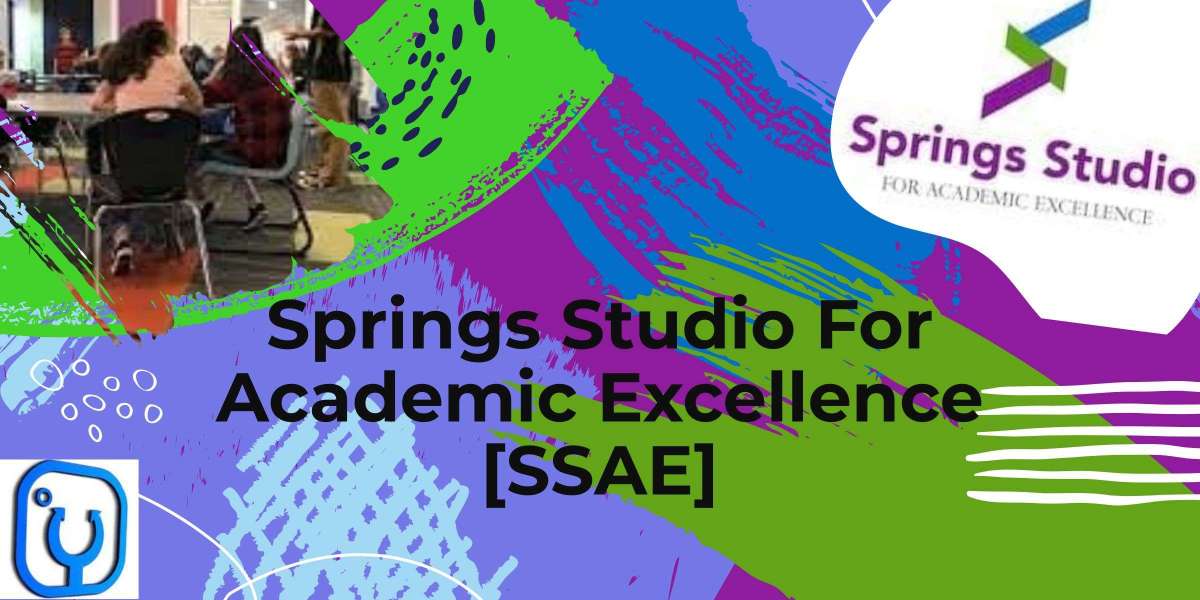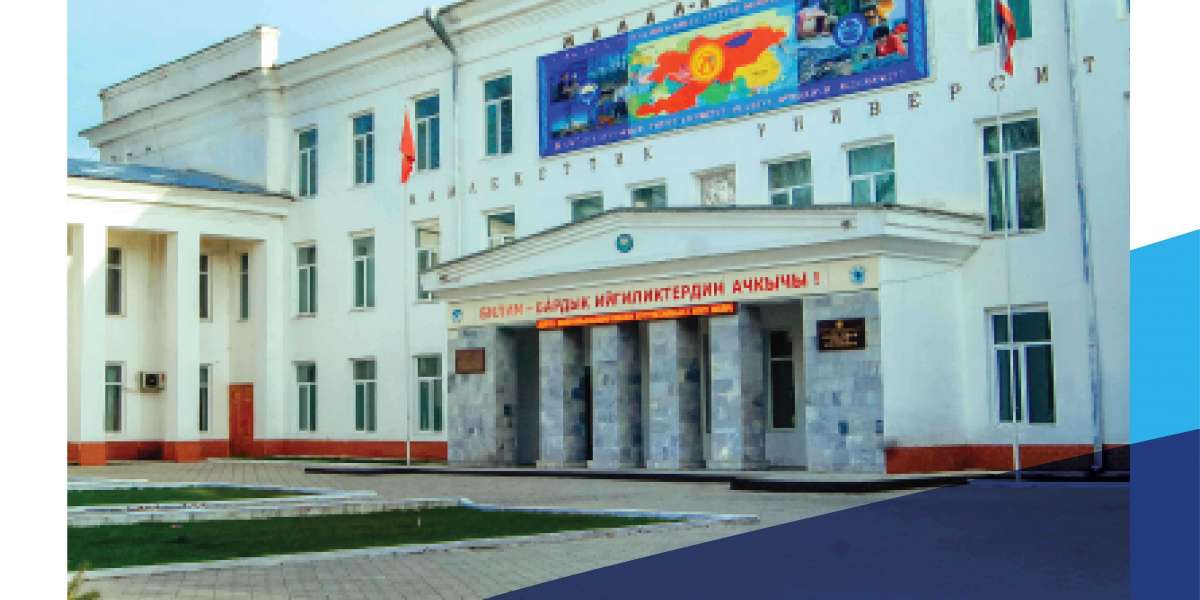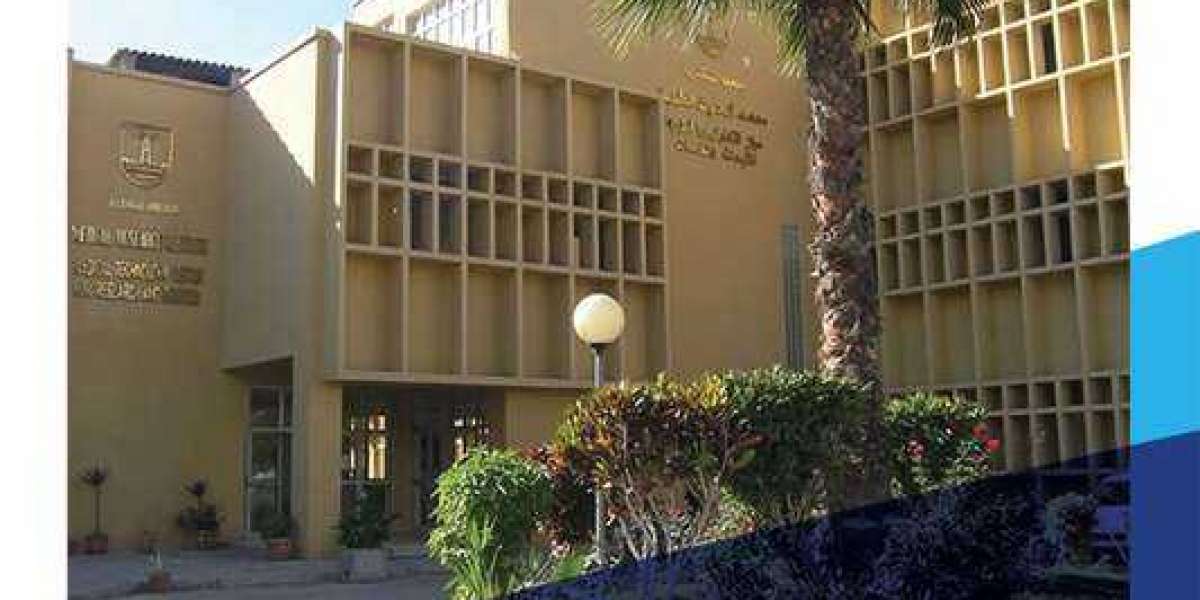A public charter school in Colorado Springs is called Springs Studio for Academic Excellence (SSAE). Students there learn both in-person and online because it is a blended learning institution. Falcon Virtual Academy, under which SSAE was first established in 2010, was replaced by Springs Studio for Academic Excellence in 2019. It is a tuition-free school that is open to all students in the state of Colorado. There are no entrance exams or interviews required for admission. Their grades are from K-12.
SSAE's teachers are highly qualified and experienced. They are all certified by the state of Colorado. SSAE teachers are also trained in blended learning. They use a variety of teaching methods to meet the needs of all learners.
SSAE has a strong focus on student success. The school offers a variety of support services to help students succeed, including tutoring, mentoring, and academic counseling. SSAE also has a strong parent-teacher communication system. Parents are kept informed of their child's progress through regular progress reports and parent-teacher conferences.
The SSAE curriculum is demanding and rigorous. Independent and self-motivated efforts are expected of all students. AP, honors, and college-credit courses are just a few of the courses that SSAE provides. Through SSAE's online partner, K12, students can also opt to take courses from other institutions.
SSAE is a great choice for students who are looking for a rigorous and challenging academic environment. The school's blended learning model allows students to learn at their own pace and to focus on their individual interests. SSAE's teachers are highly qualified and experienced, and they are committed to helping students succeed. SSAE also has a strong focus on student success, with a variety of support services available to help students reach their full potential.


Here is a more detailed look at some of the features of Springs Studio for Academic Excellence:
- Rigorous and challenging curriculum: SSAE's curriculum is aligned with the Colorado Academic Standards and is designed to prepare students for college and beyond. Students are expected to work hard and to be self-motivated. SSAE offers a variety of courses, including AP courses, honors courses, and college-credit courses.
- Highly qualified and experienced teachers: SSAE's teachers are all certified by the state of Colorado and are trained in blended learning. They use a variety of teaching methods to meet the needs of all learners.
- Strong focus on student success: SSAE has a strong focus on student success. The school offers a variety of support services to help students succeed, including tutoring, mentoring, and academic counseling. SSAE also has a strong parent-teacher communication system. Parents are kept informed of their child's progress through regular progress reports and parent-teacher conferences.
- Blended learning environment: SSAE is a blended-learning school, which means that students learn both online and in person. This allows students to learn at their own pace and to focus on their individual interests. SSAE's online platform is easy to use and provides students with access to a variety of resources, including textbooks, videos, and interactive exercises.
- Collaborative learning environment: SSAE's classrooms are designed to promote collaboration and teamwork. Students are encouraged to work together to solve problems and to learn from each other. SSAE also offers a variety of extracurricular activities, such as clubs, sports, and student government, which provide students with opportunities to connect with their peers and develop leadership skills.
If you are looking for a rigorous and challenging academic environment with a strong focus on student success, then Springs Studio for Academic Excellence is a great choice for your child. The school's blended learning model, highly qualified teachers, and a strong focus on student success are all designed to help students reach their full potential.
ABOUT SPRING STUDIO FOR ACADEMIC EXCELLENCE
BLENDED LEARNING- SPRINGS STUDIO MODEL
What exactly is Springs Studio for Academic Excellence?
Springs Studio for Academic Excellence stands as the leading example of blended learning in the state of Colorado.
We represent a blended-learning institution within District 49.
Our Constitution Campus, a cutting-edge facility covering 42,000 square feet, is strategically situated at the heart and is designed with an open-concept layout, often likened to a fusion of "Google meets Starbucks" for the ultimate learning experience.
Our curriculum is known for its rigor, relevance, and personalization, catering to the diverse needs of all learners.
Springs Studio functions as a multi-district online school, extending online and blended educational avenues to students across the entirety of Colorado.
We offer coursework that meets the standards of the NCAA, ensuring that student-athletes with college aspirations are on the right track.
Our coursework is meticulously designed to prepare students for college, aligning with the prerequisites of college readiness.
Opportunities
A diverse array of course options.
No cost is attached for high school students enrolling in courses.
Qualified students can access higher education at no charge through the Concurrent Enrollment Program.
Available as in-person assistance provided by skilled and certified educators.
Online options guarantee an excellent education for all students, irrespective of their location, financial status, or background.
Considering that one out of every three college students participates in online education, our approach effectively readies our students for success in their post-secondary endeavors.
At SSAE, the school operates on the principle that the collaboration of parents, students, and faculty is essential to unlock the full potential of every student and guarantee a prosperous academic voyage. We consider the establishment of meaningful connections with students and parents as a fundamental cornerstone, placing utmost importance on creating an environment in which students and families are confident in SSAE as a secure and nurturing place for their daily educational journey.
SSAE is suited at 6113 Constitution Avenue Colorado Springs, CO 80915
719.494.8940 F: 719.323.6465
SCHOLARSHIP OPPORTUNITIES FOR SPRING STUDIO FOR ACADEMIC EXCELLENCE
Boettcher Scholarship
(Available from September 1st to November 1st)
The procedure to apply for this scholarship is intensely competitive and requires a considerable amount of time. Students are advised to start by visiting the "Application Process, Eligibility Selection Criteria" section on the scholarship's official website and taking the Senior Competitiveness Quiz. This quiz serves as a tool to assist students in making well-informed choices regarding their intention to pursue this scholarship. However, it is important to note that the quiz provides only a portion of the information necessary for deciding whether to apply; it is not exhaustive. The application process is part of a comprehensive selection procedure that assesses candidates based on four distinct criteria.
This scholarship is granted on the basis of merit to high school seniors in Colorado. It offers substantial support covering essentially the entire cost of attending any four-year institution within Colorado. Students can submit their applications directly through the official website at www.boettcherfoundation.org. The application typically becomes available in early September, and the deadline may vary from year to year, so it's advised to regularly check the website for updates
. (The deadline usually falls around November 1st)
ALSO READ: Schools shut by Enforcers of Sit-at-Home In Imo
Daniels Scholarship
The Daniels Scholarship initiative extends a comprehensive, four-year collegiate scholarship t
hat focuses on offering financial aid and personal assistance, aimed at fostering the success of Daniels Scholars during their college journey and beyond. This scholarship is applicable for enrollment at any accredited nonprofit college or university across the United States.
While the Daniels Scholarship program substantially alleviates the financial constraints associated with pursuing higher education, it encompasses an array of exceptional advantages that extend beyond mere monetary support:
1. Monetary aid for a four-year undergraduate degree
2. Dedicated guidance and backing from the Daniels Fund team and designated on-campus contacts
3. Acknowledgment as a Daniels Scholar
4. Exclusive campus communities hosting events, activities, and assistance tailored for Daniels Scholars
5. Support in devising a rewarding career path post-college
6. Alumni Program that ensures sustained assistance and lifelong affiliation with a network of Daniels Scholars
7. Provision of a laptop computer
The application process for the Daniels Scholarship Program exclusively caters
to graduating high school seniors. The online application window is open from October until Mid-November (Refer to the website for precise dates).
ACADEMIC DEPARTMENTS
EDUCATIONAL FOCUS AREAS
Colorado's efforts to enhance education effectiveness rely on a comprehensive framework that encompasses meaningful standards, aligned assessments, capable educators and leaders, and high-achieving schools and districts. This integrated system is in constant enhancement to elevate student learning and equip them for success in an ever more competitive job market. The Colorado Academic Standards define the expected knowledge and skills students should possess by the end of each grade. These standards not only outline the required content but also represent the guiding principles and organizational structure for the crucial abilities and fundamental knowledge deemed essential by Colorado for the future success of the upcoming generation. The state standards provide the foundation for the annual state evaluation.

Within Colorado's educational structure, there are ten key focus areas:
1. Colorado Arts
2. Music
3. Visual Arts
4. Theatre
5. Dance
6. Comprehensive Health and Physical Education
7. Mathematics
8. Reading, Writing, and Communicating
9. Science
10. Social Studies
11. World Languages
ENGLISH DEPARTMENT OVERVIEW
The study and enhancement of language skills within an educational context are encompassed by the term language arts. Traditionally, language arts is divided into literature and language, where language encompasses linguistics and specific languages. According to the International Council of Teachers of English, the language arts consist of five aspects: reading, writing, speaking, listening, and visual literacy (viewing). Reading involves understanding written or printed characters, words, or sentences and encompasses a range of printed and nonprinted materials that aid in comprehending the content. Literary materials commonly found in educational curricula include fiction, nonfiction, classics, and contemporary works. The act of reading transcends mere word recognition to encompass the comprehension of information presented in written or visual forms.
Teaching literacy is crucial for equipping all students with the necessary skills to become proficient readers, writers, and communicators equipped with the 21st-century aptitudes essential for success as they transition to the postsecondary and workforce realms. Nurturing a student's capacity to read, write, and communicate is of utmost importance, as it profoundly influences their achievements across all academic subjects.
MATHEMATICS DEPARTMENT OVERVIEW
Mathematics involves the abstract exploration of concepts like quantity (numbers), structure, space, and change. Among mathematicians and philosophers, opinions vary regarding the precise scope and definition of mathematics.
Mathematicians identify patterns and leverage them to formulate new ideas. The truth or falsity of these ideas is established through mathematical proofs. When mathematical constructs accurately model real-world phenomena, mathematical reasoning can provide insights or predictions about the natural world. Stemming from counting, calculation, measurement, and systematic study of physical objects' shapes and motions, mathematics has developed through abstraction and logic. Practical mathematics dates back as far as recorded history. The endeavor of resolving mathematical problems often demands years or even centuries of sustained investigation.
Teaching mathematics is crucial for all students' development as they gain an understanding of their environment and become contributing members of society. Mathematical models elucidate, celebrate, and dissect our surroundings, from economic models in stock markets to musical models for symphonies; our existence is intertwined with mathematics. All Colorado students must grasp mathematics and its relevance in their lives.
SCIENCE DEPARTMENT OVERVIEW
Science, derived from the Latin term "scientia" meaning "knowledge," represents a systematic endeavor that constructs and arranges knowledge through testable explanations and predictions concerning the universe. In a related but older context, "science" also alludes to a body of knowledge itself, capable of rational explanation and practical application. Those who engage in scientific pursuits are known as scientists.
In contemporary usage, "science" predominantly denotes a method of seeking knowledge rather than the knowledge itself. It is often confined to fields of study that endeavor to elucidate the phenomena of the material world. During the 17th and 18th centuries, scientists progressively aimed to codify knowledge in terms of natural laws, exemplified by Newton's laws of motion. Throughout the 19th century, the term "science" became increasingly linked to the scientific method, a disciplined approach to examining the natural world that encompasses fields such as physics, chemistry, geology, and biology. In this period, the term "scientist" was coined by the naturalist-theologian William Whewell to distinguish those who sought knowledge about nature from those seeking other types of understanding.
ALSO READ: See the secondary school in Nigeria where males are paid N5,000 to bed students.
However, "science" has retained a broader meaning, encompassing dependable and teachable knowledge on various subjects, as seen in contemporary terms like "library science" or "computer science." This perspective is also evident in academic fields like "social science" or "political science."
Teaching science is pivotal for cultivating curiosity about our surroundings. Science equips us with methods and processes to investigate the mechanics of the world and the reasons behind natural occurrences. Science education readies students to become both creators and discerning consumers of knowledge in the 21st century.
Science, Technology, Engineering, and Math
STEM education serves as a platform for transforming teaching and learning by integrating science, technology, engineering, and mathematics content and skills. Through STEM education, students engage in 21st-century practices involving inquiry, critical thinking, collaboration, innovation, reasoning, and information literacy. These skills significantly enhance their capacity to excel by mastering and applying concepts within STEM disciplines and across all subject areas.
SOCIAL STUDIES DEPARTMENT OVERVIEW
Social Studies involves the "holistic exploration of the social sciences and humanities with the goal of fostering civic competence," as articulated by the American National Council for the Social Studies. This field often blends various disciplines, including sociology, political science, history, economics, religious studies, geography, psychology, anthropology, and civics. Courses are frequently interdisciplinary, drawing from these fields. At the elementary school level, social studies primarily focuses on the local community and families. As students progress to middle and high school, the curriculum becomes more specialized and aligned with specific disciplines. The nature of social studies as a subject varies significantly across countries and educational programs, and it is distinct from sociology or the broader social sciences. Some courses incorporate concepts from the social and political sciences, while others are independently designed for educational institutions.
Educating students in social studies is vital for enabling them to make well-informed and thoughtful decisions that contribute to the collective welfare as responsible citizens within a diverse, democratic society, interconnected on a global scale. A robust social studies education equips students to recognize, comprehend, and collaborate as informed members of the public, addressing the complex issues that challenge our communities, regions, countries, and the world.
FINE ARTS DEPARTMENTS OVERVIEW
The fine arts encompass artistic expressions primarily centered on visual elements, encompassing activities like ceramics, drawing, painting, sculpture, printmaking, design, crafts, photography, video production, filmmaking, and architecture. It's important to note that these definitions shouldn't be interpreted too rigidly, as various artistic fields (performing arts, conceptual art, textile arts) incorporate visual aspects along with other art forms. Additionally, the realm of visual arts encompasses applied arts such as industrial design, graphic design, fashion design, interior design, and decorative art. The contemporary interpretation of "visual arts" encompasses both fine arts and applied arts and crafts.
Teaching the various art disciplines is crucial for fostering creativity, interdisciplinary thinking, empathy, self-expression, and the capacity to perceive the world from diverse perspectives. Whether students are honing individual skills or contributing to collaborative artistic ensembles, the arts demand qualities such as perseverance, dedication, adaptable thinking, and innovative approaches. The 21st century, characterized by its conceptual nature, necessitates individuals who possess dynamic, multifaceted, globally oriented thinking—qualities that are fundamental outcomes of a comprehensive arts education.
Music, as an artistic form, revolves around sound and silence. Its key elements include pitch (governing melody and harmony), rhythm (along with concepts like tempo, meter, and articulation), dynamics, and the auditory qualities of timbre and texture. The term originates from the Greek word "mousike," denoting the "art of the Muses." The creation, performance, significance, and even interpretation of music vary depending on culture and societal context. Music spans from meticulously organized compositions (performed and reinterpreted) to improvised pieces and aleatoric forms. Music can be classified into genres and subgenres, although these boundaries and relationships between genres are often nuanced, subject to individual interpretation, and occasionally contentious. Within the realm of arts, music is considered both a performing art and a fine art, as well as an auditory art. It can be further categorized into art music and folk music. An intrinsic connection between music and mathematics also exists. Music can be experienced live, as part of a dramatic work or film, or in recorded format.
FOREIGN LANGUAGE DEPARTMENT OVERVIEW
A foreign language is a language native to another country, and it's also a language not spoken in the individual's home country. For instance, an individual from an English-speaking country residing in Japan might consider Japanese a foreign language. Although these descriptions capture some aspects, they don't encompass all possible definitions, and at times, the term is used in ways that might be misleading or incorrect. Some children learn more than one language from birth or a young age, making them bilingual or multilingual. These youngsters may possess two, three, or more mother tongues, wherein none of the languages is foreign to them, even if one language is foreign to the majority in their country of birth. For example, a child learning both English from their English-speaking parent and Japanese at school in Japan can effectively communicate in both languages, even if neither is foreign to them.
Most educational institutions globally include instruction in at least one foreign language. Typically, mandatory foreign language lessons commence in late primary school or early secondary school. In certain regions, learners participate in lessons taught entirely in a foreign language.
In the 21st century, the capacity to communicate in multiple languages is a crucial skill for all learners in Colorado. Acquiring proficiency in multiple world languages, fostering diverse viewpoints, and understanding different cultures are indispensable abilities for effectively collaborating and competing within our interconnected global society. Languages serve as bridges between individuals on both local and international scales. Engaging with languages and cultures introduces learners to fresh perspectives on interpreting and questioning the world. These interactions enable students to gain knowledge, skills, and attitudes that prepare them for life and work in a world characterized by diverse people, languages, and cultures.
SPRING STUDIO
Developing Academic Support
The establishment of academic support aims to foster a cohesive system that links students with high-quality, standards-based teaching and intervention tailored to their academic, socio-emotional, and behavioral requirements. This system monitors and assesses data to monitor students' progress across tiers, facilitating targeted remediation or advancement based on individual student needs.
SPECIAL EDUCATION OVERVIEW
Guidance for Special Education
Our special education teams and services are committed to informing and assisting you in staying abreast of educational trends pertaining to standards-aligned instruction, accommodations, and classroom evaluation for students with disabilities.
Promoting Academic Achievement and Social Skills
In effective school settings, the emphasis lies on the academic accomplishment and social competencies of every student. We identify evidence-based techniques and approaches that contribute to positive behavioral outcomes for all learners, enhancing school atmosphere and student results.
Significance of Accommodations
Accommodations play a vital role in educational environments, especially for students whose disabilities impede their ability to complete learning or testing tasks. Thus, providing accommodations that support learning and enable students to showcase their knowledge and abilities is a crucial aspect of teaching and assessing students with disabilities.
Our Commitment
Our aim is to provide educators and administrators with current resources and information concerning instructional accommodations and assessment methods for students with disabilities. Feel free to reach out to your district or school special education teams to access state guidance materials, professional development opportunities, and other resources designed to cater to students with documented needs, including those with disabilities.
GIFTED EDUCATION
Nurturing Gifted Learners
District 49's strategic plan wholeheartedly embraces and empowers gifted learners through its fifth core principle, "Every Student." The plan underscores District 49's commitment to personalizing educational experiences that propel each student toward success. If you have inquiries about gifted education in District 49, please contact the district's gifted coordinator, Diane Neff.
Defining Gifted Students
A gifted student, aged 4 to 21, demonstrates exceptional competence, talents, and potential in one or more domains, necessitating specialized provisions to meet their educational programming needs. This category encompasses gifted students with disabilities, those with exceptional abilities or potential, and students from diverse social, economic, ethnic, and cultural backgrounds.
Gifted Education Vision and Mission
The vision of District 49's gifted education is to ensure that all gifted students achieve ambitious post-secondary goals and become proficient, innovative citizens in their areas of strength. The mission is to facilitate gifted student growth and success through systematic support, programming, and advocacy.
ALSO READ: Miracle Centres: A List of Nigerian Secondary Schools restricted by the WAEC for Exam Fraud
Diverse Programming for Gifted Learners
District 49 is committed to identifying and offering exceptional programming for gifted students. Collaboratively, schools and Gifted Specialists develop Advanced Learning Plans to challenge and nurture these students, fostering academic growth throughout the year.
Variety of Instructional Approaches
Gifted needs are met through various instructional strategies and programming options. Early access is provided for highly gifted kindergarten and first-grade students. Differentiated instruction, advanced learning opportunities, and after-school activities are available at elementary schools, while middle and high schools offer a range of honor classes, enrichment courses, and academic clubs. High school students can personalize their learning through Career Academies, Advanced Placement courses, and concurrent enrollment, while Falcon Virtual Academy offers a self-paced online curriculum. District 49 aims to provide diverse opportunities to support the academic, social, and emotional development of gifted students.
Partnership with Parents
District 49 recognizes parents as vital partners in addressing the needs of gifted learners. Collaboratively, parents and teachers ensure that gifted children are not only challenged but also valued for their unique capabilities. The gifted education website offers parents a wealth of resources and support, along with information on District 49's gifted education processes and procedures.
And that is all on, Spring Studio For Academic Excellence. Stay tuned for more updates.
THANKS FOR READING!




Iceyy Junior 2 w
good